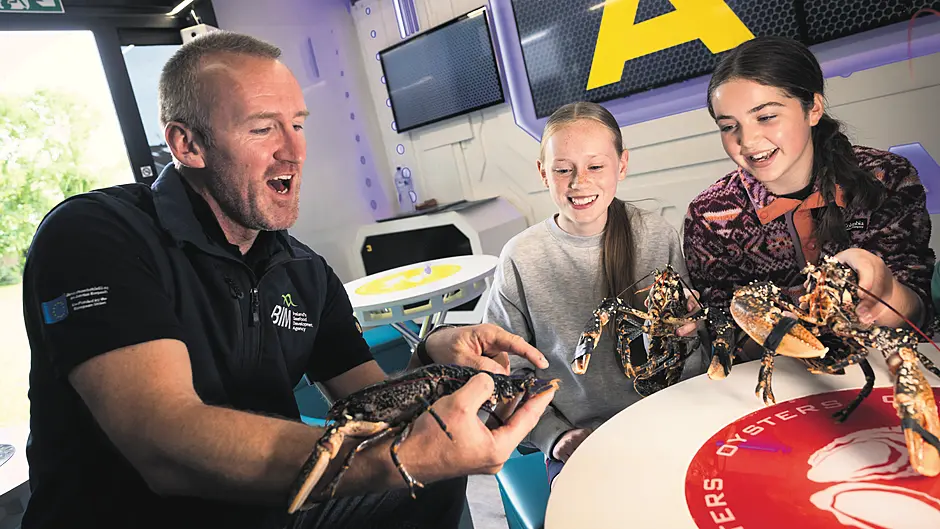SIXTH class pupils from St Mary’s National School in Carrigaline marked World Oceans Day by delving into the world of sustainable fisheries and conservation efforts during a visit from the Bord Iascaigh Mhara (BIM) Aquaculture Remote Classroom (ARC).
Pupils learnt how lobster stocks are being protected by Ireland’s fishing sector and how other seafood is sustainably produced in coastal communities, such as those in Cork.
The lobster conservation programme, jointly funded by the Government of Ireland and the EU, under the European Maritime Fisheries and Aquaculture Fund, involves cutting a v-shaped notch in the tail of female lobsters by trained BIM staff.
This allows the lobsters to continue breeding, with those marked protected by legislation.
Last year, over 47,000 lobsters were safely returned to the sea as a result of the v-notching programme, involving 225 inshore fishermen and women working on Ireland’s coastline.
As part of the educational experience, a live lobster v-notching demonstration was given by BIM Regional Development Officer, Sean Daly, who has also worked as a fisherman.
Mr Daly spoke of how he views the v-notching programme as one of the most important parts of his job, explaining its origins in Maine in the USA, a major lobster fishing locality, and how it was first adopted by Ireland in 2015.
Pupils got to try out v-notching for themselves under the supervision of Mr Daly and the ARC class facilitators.
Pupil Yana Kozloza, aged 12, shared her impression of the day, stating: ‘It’s fascinating. I found out a lot about fish and lobsters that I didn’t know. It’s better than Irish.’ Conor Garrett, aged 12, added: ‘I really enjoyed learning about lobsters and salmon. I also enjoyed learning about how salmon can jump three metres high.’
The ARC is a state-of-the-art mobile classroom, designed to raise awareness of seafood farming in Ireland and its significance to coastal communities, food security, and food supply.
The immersive technologies used in the ARC include VR, video, games, and other class-based activities.
Younger audiences have been learning how oysters, salmon, and other seafood are sustainably farmed in Ireland since its launch in 2018. Over 7,500 people visited the ARC last year.
Sixth class teacher, Róisín O’Sullivan, praised the ARC as a valuable resource for schools, emphasizing the hands-on learning experience and the engagement of the children in sustainability education.
‘From the moment the truck arrives to the school. It’s looks so futuristic and there’s a real hands-on learning experience. You see how the children are so absorbed. We’ve done a lot about sustainability this year. This is a great way to end the year.’







